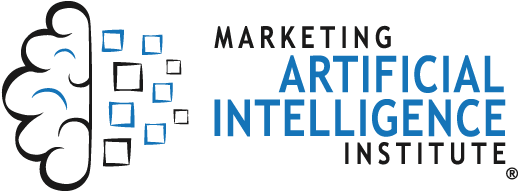Facebook estimates that 5% of its 2.38 billion monthly active users are fake—or bots, as you’ll often hear them called.
Of those other real users, which should you follow to keep tabs on the ever-changing state of AI in social media?
At this intersection of marketing and data science are forward-thinking professionals using AI to confront serious social media challenges—such as bots, bullying, and misinformation—and costly marketing challenges like wasted social ad spending, time-intensive social posting, and unproductive scheduling and management.
Whichever side of the equation you hail from, start by following some of these influential pros specializing in social media and AI.
1. Olga Egorsheva, Co-Founder and CEO, Lobster
Olga is the co-founder and CEO of Lobster, an AI-powered platform that enables companies to license visual content directly from social media users and cloud archives. She is helping brands connect with consumers through social media to enhance their marketing.
As Olga puts it: “2.5-billion people will be within easy reach, and it’s down to AI.”
- Twitter (@egolya)
- Guest post on Martech Advisor.
2. Kate Bradley Chernis, Co-Founder & CEO, Lately
Lately is an AI-powered marketing software platform that automatically turns blogs, videos and podcasts into social posts. It even schedules those posts across channels, saving marketers hours and hours of time. Kate’s company has received $2.7 million to date in funding, and is a standout in the tech world. She goes beyond talking social and AI, bringing a voice to the issues of tech startups and investments, where only 2.4% of VC funding went to women-only founded companies in 2018.
3. Mike Rhodes, Founder & CEO, WebSavvy
WebSavvy offers a Facebook and Instagram ads management tool, and Mike wrote the world’s best selling book on Google Ads, with over 100,000 copies sold.
Mike likes to help businesses identify how AI can help their businesses and show them which solutions use AI and which don’t.
4. William Ammerman, EVP of Digital Media, Engaged Media
AI is transforming how brands buy and place digital ads. William has spoken about the AI systems that exist today that can automatically buy and test ads, write copy and optimize budget allocation across channels—including social media. And in his book, The Invisible Brand: Marketing in the Age of Automation, Big Data, and Machine Learning, he explores the risks and rewards of the massive shift happening in marketing to AI.
- Twitter (@wammerman1)
- Recap of the five 2019 MAICON workshops, including AI in Advertising 101 with William.
5. RJ Talyor, Founder and CEO, Pattern89
Digital advertising success blends creativity with science. Pattern89 uses AI to help marketers create compelling creative and see projected performance before an ad runs. At a time when creatives fear that AI is replacing them, RJ recognizes that importance creativity will continue to have in marketing as AI transforms the field.
6. Adam Hildreth, Founder & CEO - Crisp Thinking Group
Adam’s team at Crisp uses AI in a much different way than the tools and leaders mentioned above. Crisp specializes in “linguistics, reporting, psychology, data protection, law and regulation to bring you comprehensive, 24/7/365 Social Media Safety.” He believes in the value of social media to bring people together, but uses AI to help brands manage and avert liabilities on their own channels.
7. Jay Baer, Founder, Convince & Convert
As a speaker, business consultant, and author, the throughline is that Jay focuses on the customer. Social media is fundamental to how consumers interact with one another, and it enables brands to communicate this way, too. His perspective is that AI takes over the “hard, tedious, time-consuming” tasks for digital marketers, letting human strategists be king.
8. Yann LeCun, VP & Chief AI Scientist, Facebook
Yann has been a staple of the AI and machine learning community going back to the 90s, when he advanced and refined the convolutional neural network (CNN). More importantly for marketers and social media practitioners, he founded Facebook’s AI research lab (FAIR) in 2013 and today serves as the social giant’s chief AI scientist.
9. Jérôme Pesenti, VP of AI, Facebook
“AI is the core of Facebook’s business.” This quote from Jerome in 2018 is increasingly important as Facebook works to filter out inappropriate content and answer to its critics about censorship and the spread of misinformation.
Jerome took over the 130-person FAIR team in 2018, and is helping accelerate Facebook’s growth in AI. His perspective and impact not only shapes the world of social media and AI, but the experiences of every Facebook user.
10. Deepak Agarwal, VP of Engineering, Artificial Intelligence, LinkedIn
Deepak joined LinkedIn’s AI department in 2012 with a team of 10. Today, it has more than 550 employees. According to Deepak’s, AI is like oxygen for the social media giant. It’s foundational to LinkedIn’s recommender systems, search, knowledge graph, classification systems, natural language processing, multimedia, anomaly detection, and more.
How to Get Started with AI for Social Media
AI is transforming how businesses use AI—and it already has. AI can help you increase revenue and reduce costs, and you can get started today.
Access our free Ultimate Beginner's Guide to AI in Marketing.
The Ultimate Beginner’s Guide to AI in Marketing is a free resource with 100+ articles, videos, courses, books, vendors, use cases, and events to dramatically accelerate your AI education. It's based on the years we spent on research and experimentation—and you can access this knowledge in a fraction of the time.
